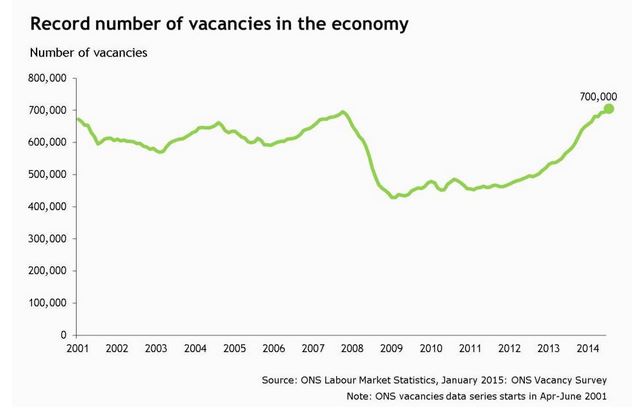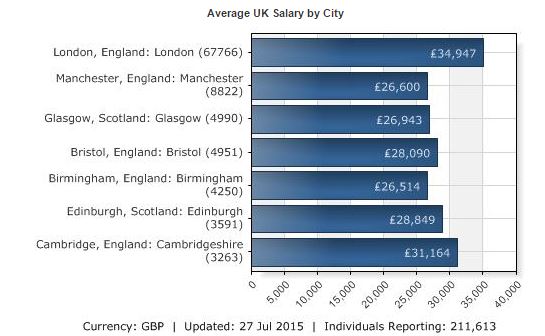
The UK employment rate and job market are continuously shifting and it is important for employers and recruiters to keep up to speed. As the markets change, so do the number of active candidates and applications. Candidate expectations also vary and salaries and packages that were offered 5 years ago may no longer attract the right calibre of candidates today.
What you need to know today
UK Employment Rate
The employment rate now stands at 73.3%, the highest rate of people in work since the ONS (Office for National Statistics) began keeping records in 1971. These statistics show that businesses are hiring and this is bringing the unemployment rate down. The total number of people without a job has fallen by nearly one million since 2010 and now stands at 1.84 million.
More people in work means fewer job seekers, fewer job seekers means more unfilled vacancies.
Job Vacanc y Stats
y Stats
Today’s independent figures show that job vacancies have risen by 127,000 to hit a 14-year record high. There are around 700,000 job opportunities across the country – rising by 127,000 in the last year alone.
The Impact on Salaries
Graduate Salaries
The substantial increase in graduate vacancies for 2015 takes graduate recruitment beyond the pre-recession peak in the graduate job market in 2007 and means that there will be more opportunities for this summer’s university-leavers than at any time in the last decade.
With the rise in opportunities, most employers that have opted to increase their graduate pay in either 2014 or 2015 have done so in order to compete effectively with other employers recruiting graduates.
According to TotalJobs’ data the average starting salary for a Graduate in London is £29,000 and for Graduates in Manchester, £25,000.
Managerial Salaries
TotalJobs’ data highlights that mid-level managers in London are on average salaries of £42,500 and in Manchester managers are taking home £36,600. Note that these figures reflect a broad range of management-level roles. Business and branch manager salaries would be another £5,000-£15,000 on top of this.
The chart below gives a good indication of location disparity in salaries across the UK:

What does this mean?
So, what do all these statistics mean for employers and recruiters?
I think that it is important to stay in-the-know when it comes to the shifting job market. Employers cannot expect to attract high-calibre candidates with the same salaries they were offering 5 years ago. Now we need to work harder and offer more to get the best people to join our businesses. We need to really invest in our new employees because ultimately they will shape the future of our companies’ success.
Follow us on Twitter, LinkedIn and Facebook for business insights, interview tips, advice and career opportunities.